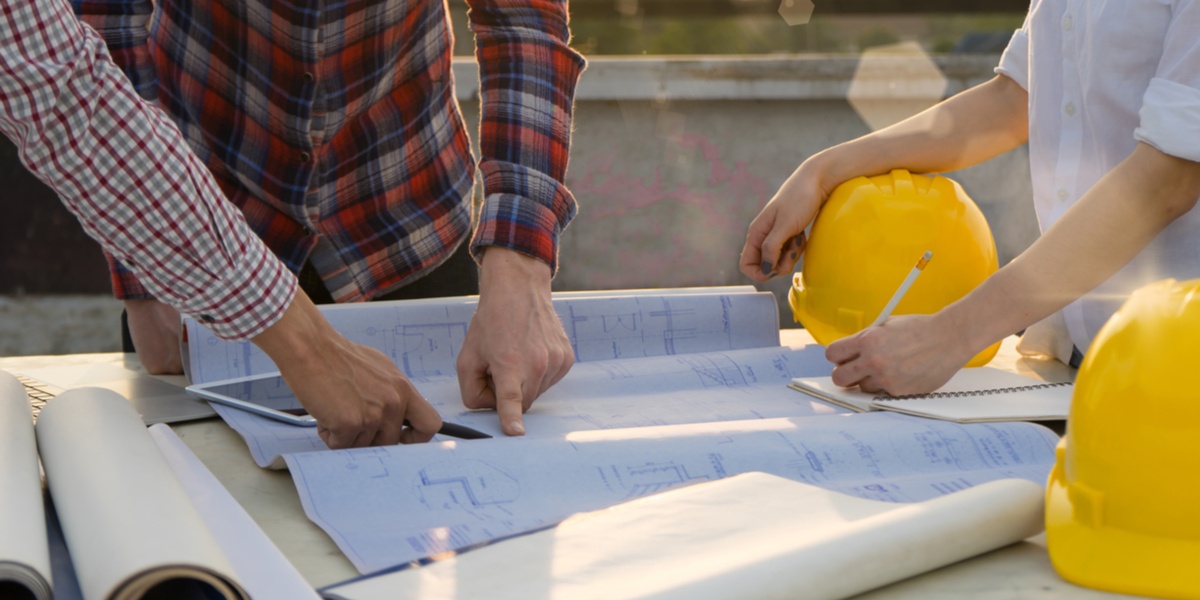Introduction to the New Jersey Construction Code

The Uniform Construction Code is the basis for all construction projects in New Jersey, and it can be found in the NJ Administrative Code (NJAC), Title 5, Ch. 23. The code provides general requirements for projects, including a series of subcodes dealing with specific building systems: space heating, air conditioning, plumbing, electricity, etc. In turn, subcodes use national and international standards as their base, while adding specific requirements for New Jersey.
The Uniform Construction Code provides the minimum requirements for project approval in New Jersey. However, if you are willing to invest in enhanced building performance beyond code, your project may earn tax incentives and cash rebates. Most rebates are offered through the NJ Clean Energy Program.
This article will describe the main aspects of the Uniform Construction Code, as well as the national and international standards it references, focusing on the subcodes that affect MEP systems (mechanical, electrical and plumbing). The State of New Jersey Department of Community Affairs is the authority in charge of code enforcement.
Get a code compliant and energy efficient MEP design.
NJ Construction Code General Requirements
The opening chapters of the Uniform Construction Code provide key definitions and describe the general procedure to get a construction permit in New Jersey. The code also extends a grace period of 6 months each time there is a subcode revision, where projects can be approved based on the previous edition. Projects defined as minor work by the code do not require a permitting procedure, but the Dept. of Community Affairs must be notified.
Having provided general definitions and requirements, the Uniform Construction Code proceeds with requirements for specific building systems through a series of subcodes:
- Building Subcode
- Plumbing Subcode
- Electrical Subcode
- Energy Subcode
- Mechanical Subcode
- One- and Two-Family Dwelling Subcode
- Fuel Gas Subcode
- Rehabilitation Subcode
- Barrier Free Subcode
- Elevator Subcode
NJ Mechanical Subcode
The NJ Mechanical Subcode is mostly based on the 2015 International Mechanical Code, adding specific modifications and amendments for New Jersey. These additional requirements are covered in Section 5:23-3.20 of the NJ Administrative Code.
Most of the changes to the 2015 International Mechanical Code deal with wording or administrative aspects. The main changes that affect technical requirements are the following:
- Oil burners must include manual stops to cut the oil supply, except for those in oil stoves with built-in tanks. The manual stop must be a clearly labeled switch for electrically-driven equipment, and a valve for equipment not controlled by electricity. The code provides specific positioning requirements for these manual stops in each case.
- Requirements for plenums in air duct systems are eliminated for one- and two-family dwellings, since buildings of this type get a dedicated subcode.
- The code establishes that only refrigerants listed by the US Environmental Protection Agency can be used in refrigeration systems.
- Compliance with the NJ Department of Environmental Protection rules is required for oil storage tanks and piping.
NJ Electrical Subcode
The NFPA 70 National Electric Code, 2014 Edition, is the basis for the NJ Electrical Subcode. Specific code changes for NJ are outlined in Section 5:23-3.16 of the Administrative Code.
- Some requirements for garages, accessory buildings and unfinished basements are replaced with those from a previous edition - the 2005 NEC.
- Many articles dealing with ground-fault circuit interrupters (GFCI) and arc-fault circuit interrupters (AFCI) in dwelling units are eliminated, since these buildings have a dedicated subcode.
- In events such as carnivals and fairs, the clearances required for conductors in rides and attractions are reverted to those of the 2005 NEC.
- Many NEC sections dealing with mobile homes, manufactured homes, mobile home parks and recreation vehicles are released. These are covered by other NJ subcodes.
An additional requirement is that automatic lawn sprinkler systems must have a rain sensor that shuts them off when the accumulated rainfall exceeds ½ inch. This measure helps preserve both energy and water.
NJ Plumbing Subcode
The NJ Plumbing Subcode is based on the 2015 National Standard Plumbing Code, while introducing changes and additions, like in the mechanical and electrical subcodes.
|
Plumbing Category |
Additional Requirements |
|
Potable water |
|
|
Sewage |
|
|
Fire protection |
|
|
Requirements affecting more than one piping category |
|
Recommendations
Meeting the New Jersey Uniform Construction Code requires being familiarized with the code itself, and also with the national and international standards referenced. Unless a project is considered minor work, there is a design approval and permitting procedure to follow. The process can be completed without major hurdles if you seek professional services from qualified design engineers.

Michael Tobias
Michael Tobias, the Founding Principal of NY Engineers, currently leads a team of 50+ MEP/FP engineers and has led over 1,000 projects in the US
Join 15,000+ Fellow Architects and Contractors
Get expert engineering tips straight to your inbox. Subscribe to the NY Engineers Blog below.



